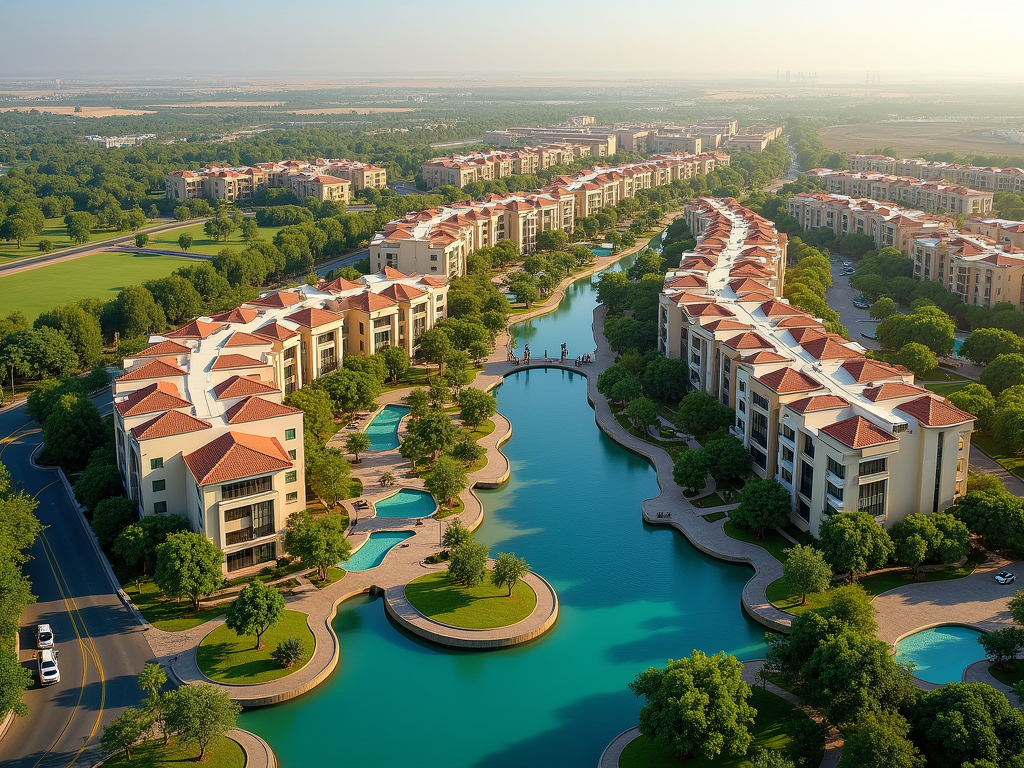Dubai’s property tax system is a vital aspect that potential investors must comprehend before making any commitments. Unlike many global cities, Dubai boasts a favorable tax environment, primarily aimed at attracting foreign investors. The city does not impose property taxes in the traditional sense, but there are fees and charges that need to be considered. This article will explore the various components of Dubai’s property taxation system, including transaction fees, ownership costs, and potential rental yields, offering a comprehensive guide for prospective investors.
Key Components of Dubai’s Property Tax System

Understanding the components of Dubai’s property tax system is crucial for investors. While there are no annual property taxes, investors must account for several key costs associated with buying and owning property. The main components that investors should consider include:
- Transfer Fees: Typically, a transfer fee of 4% of the property’s purchase price is applicable for all transactions.
- Registration Fees: A nominal registration fee is charged when registering the property with the Dubai Land Department.
- Service Charges: Monthly or annual fees that cover the maintenance and upkeep of communal facilities, which can vary by property.
- Utility Charges: Property owners need to budget for water and electricity fees, determined by Dubai Electricity and Water Authority (DEWA).
- Community Tax: Some communities may impose additional levies for local amenities and services.
Cost Implications for Investors

While Dubai’s tax regime is attractive, it is essential for investors to calculate the overall cost of ownership carefully. When structuring an investment strategy, consider the following:
- Initial Investment: Aside from the purchase price, factor in transfer fees and registration costs, which can add a significant amount to the initial outlay.
- Ongoing Costs: Regular service charges and utility bills can accumulate, impacting overall profitability.
- Rental Yields: Investigate the rental market to gauge potential returns; Dubai’s rental yields can be quite high, often ranging between 6% to 10% annually, making it attractive for investors.
- Market Fluctuations: Property values can fluctuate based on market trends, economic conditions, and regulatory changes, affecting investment returns.
Dubai’s unique tax environment is highly favorable compared to many global markets, which can provide multiple advantages for investors. Some of the key benefits include:
- No Income Tax: Investors can enjoy the benefits of no personal income tax on rental income.
- No Capital Gains Tax: Upon the sale of a property, investors are not subject to capital gains tax, enhancing overall gains.
- Foreign Ownership: The Emirates allows 100% foreign ownership in designated areas, making it easier for non-residents to invest.
- Infrastructure Development: Continuous investment in infrastructure makes Dubai an attractive destination for business, tourism, and investment.
- Stability and Safety: The UAE is known for its political stability and low crime rates, providing a secure environment for investments.
Conclusion
In summary, Dubai’s property tax system offers a strategically advantageous environment for investors. The absence of traditional property taxes, coupled with the attractive benefits such as no income tax and high rental yields, positions Dubai as a prime location for real estate investment. However, a comprehensive understanding of all associated costs is paramount for potential investors to maximize their returns effectively. By navigating these facets carefully, investors can leverage Dubai’s favorable tax landscape to build substantial portfolios.
Frequently Asked Questions
1. Are there any property taxes in Dubai?
No, Dubai does not impose traditional property taxes, but there are transfer fees and registration costs that investors should consider.
2. What is the average transfer fee for property purchases in Dubai?
The average transfer fee is typically 4% of the property purchase price.
3. How often do I need to pay service charges?
Service charges are usually paid monthly or annually and vary based on the community and facilities associated with the property.
4. Can I achieve high rental yields in Dubai?
Yes, investors can expect rental yields between 6% to 10% annually, depending on the property and market conditions.
5. Is foreign ownership allowed in Dubai real estate?
Yes, foreign investors can own 100% of properties in designated areas within Dubai.



